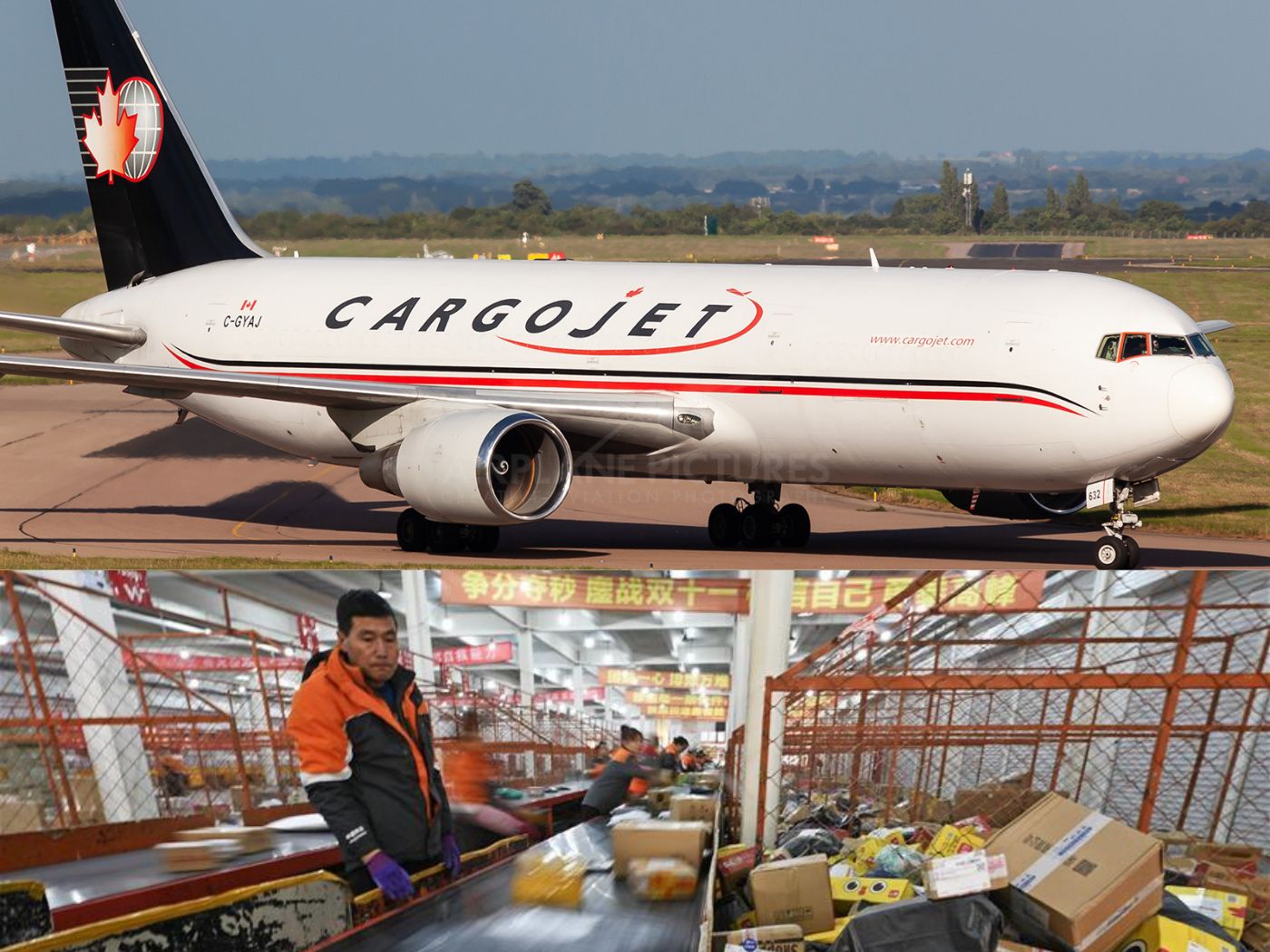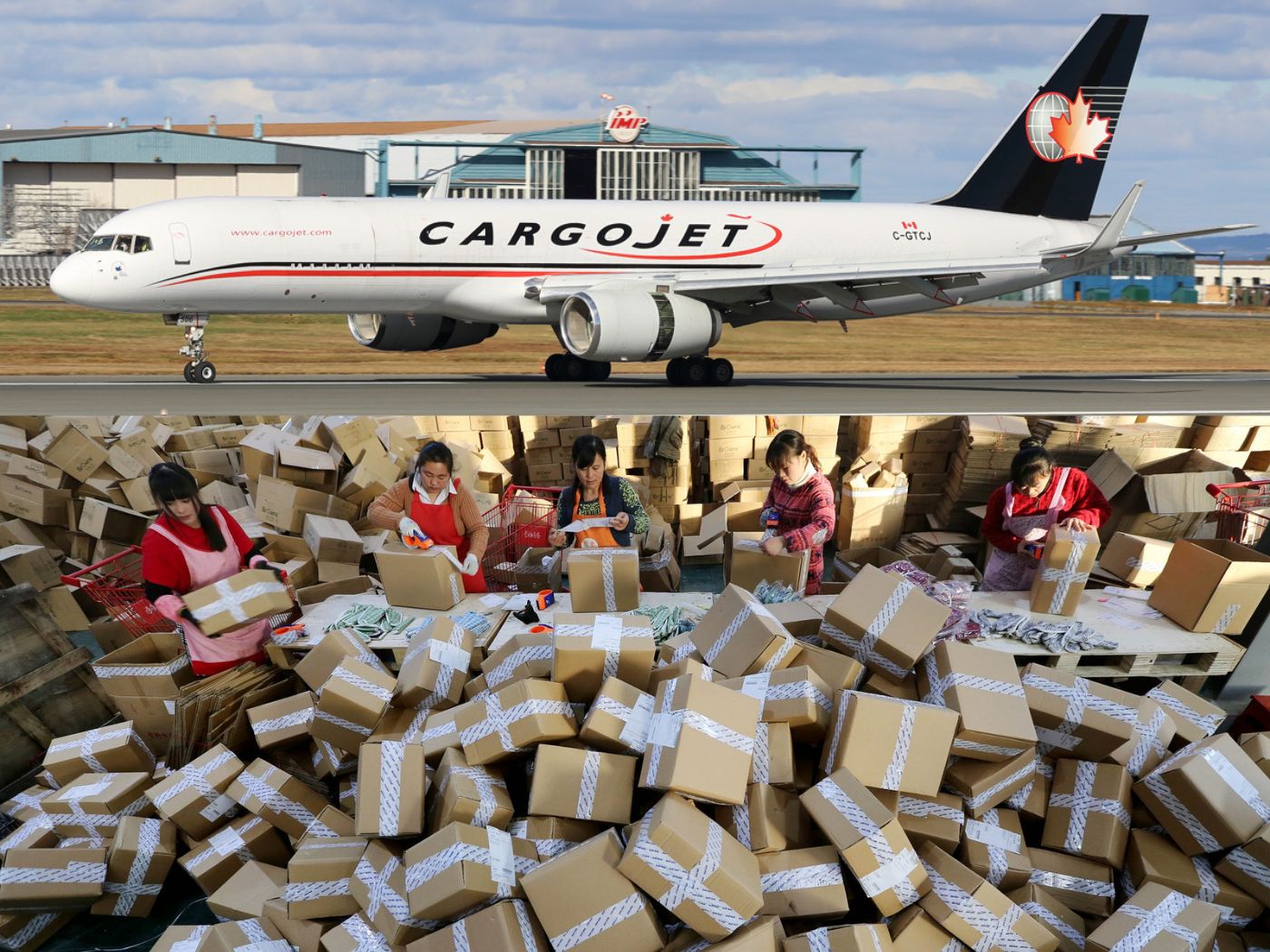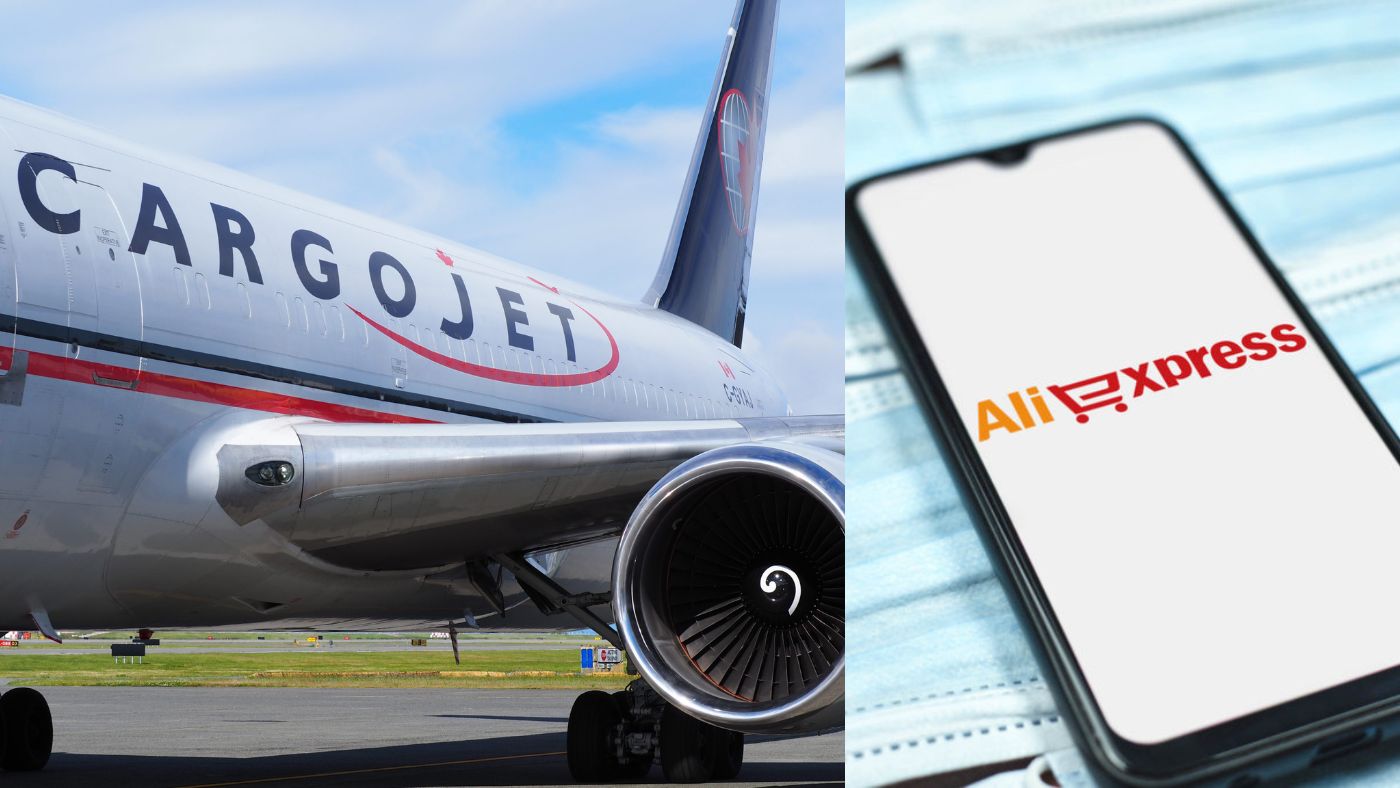Cargojet, renowned for its domestic overnight airfreight network in Canada for Amazon and DHL Express, announced on Monday that it has commenced scheduled charter service for Great Vision HK Express to support the rising e-commerce orders from China.
Under a three-year contract with China-based Great Vision HK Express, projected to generate US$116.2 million in total revenue, the Canadian air cargo company will operate at least three flights per week from Hangzhou to Vancouver, British Columbia, using Boeing 767-300 converted freighters.
The agreement highlights the significant role of e-commerce platforms in China — including Shein, Temu, Alibaba, and JD.com — as the main drivers of growth in the air cargo industry over the past two years.
Great Vision HK Express offers cross-border e-commerce logistics services for online sellers, encompassing pickup, pre-sorting, airfreight, customs clearance, warehousing and distribution, and last-mile delivery.
Cargojet (TSX: CJT) stated it began dedicated charter service for Great Vision on May 22 and has completed eight flights so far. Some parcels will be delivered to customers in the Vancouver area, while the rest will be transferred to Cargojet freighters that fly daily to 15 other Canadian cities for nationwide distribution.

Cargojet operates a fleet of 41 Boeing 757 and 767 freighter aircraft. The company’s ability to utilize its existing capacity to service the Great Vision contract suggests the deal will enhance the bottom line without incurring additional startup costs.
“We continue to look for opportunities to maximize asset and aircraft utilization and look forward to a strong partnership with Great Vision HK,” said co-CEO Pauline Dhillon in a news release.
Aviation experts generally agree that Boeing 767 freighters are ideal for regional operations rather than long-haul international routes. However, airlines often adapt to using the medium widebody aircraft if necessary.
Last year, Cargojet decided against investing in eight Boeing 777 freighters due to the $1.2 billion cost, opting instead to preserve cash flow amid uncertain market conditions. The 777-300, which it was considering, is well-suited for transcontinental e-commerce operations due to its high cubic volume.
Cargojet has not permanently abandoned its plans for 777 freighters. It still holds four 777-300 conversion slots with Israel Aircraft Industries and is negotiating to defer them until market conditions are more favorable for growth, according to executives earlier this year.

The surge in B2C shipments from e-commerce platforms and fast-fashion companies in China has been a significant factor in the air cargo market’s recovery from the pandemic and continues to show robust growth.
New York-based Atlas Air recently announced it will operate two Boeing 747-400 jumbo jets for Shein and Temu to the United States, starting in the third quarter.
Chinese freight forwarder YunExpress has contracted with Atlas Air to operate 777 freighters multiple times per week on routes between China and the U.S. Additionally, YunExpress has established a private air service between China and Europe with the assistance of Chinese carrier Central Airlines.
Earlier this year, Cargojet’s management expressed cautious optimism about revenue growth as volumes increased in the first quarter, particularly in the domestic market.
Cargojet’s adjusted earnings fell 9% last year to $223 million. The company reported nearly flat revenue of $169 million year over year, while adjusted earnings, excluding accounting measures and taxes, increased by 3.6% to $57 million.
Despite the decline, adjusted EBITDA is double what it was in 2019, before COVID, largely due to diversified lines of business such as dedicated contract transportation.







Leave a Reply